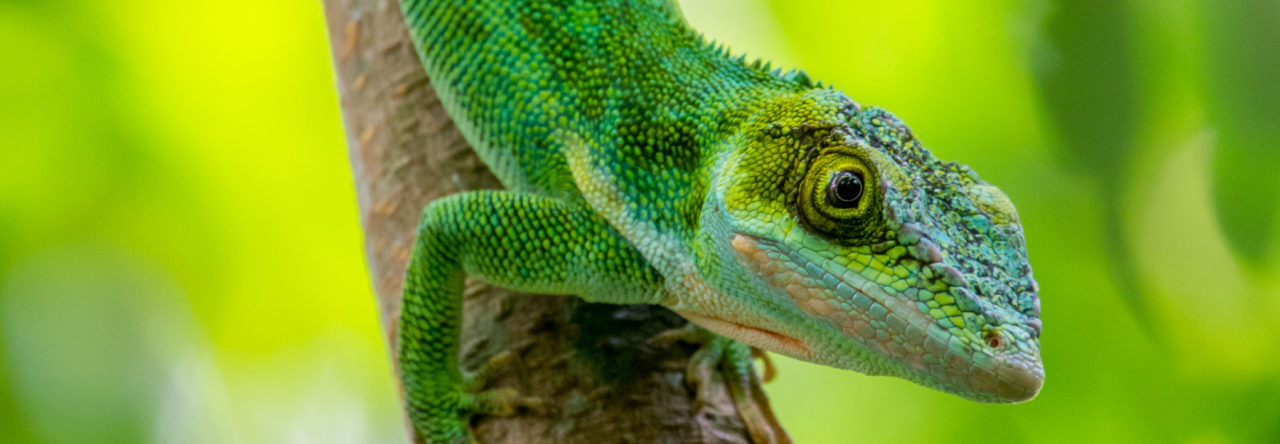Everyone’s worried about global warming. For a long time, frogs hogged the herpetological spotlight, with concern that the global amphibian crisis might be driven by climate change. However, in recent years, there has been a growing realization that lizards may be in trouble, too, and again the finger has been pointed at climate change.
One hypothesis put forward by Ray Huey and colleagues is that as temperatures warm, open-adapted species will be able to invade forests, which previously had been too cool for them, and the cool-adapted forest lizards, living in a now warmer home and faced with competition from the invaders, would have nowhere to go and would be in big trouble. Preliminary data from Puerto Rico support this model, and Huey and colleagues have returned to the enchanted island to further test the hypothesis.
Michael Logan, a graduate student at Dartmouth, has set out to test this idea elsewhere, working in the Bay Islands off the coast of Honduras. These islands are particularly interesting because they are one of the few places where Caribbean and mainland anole faunas meet, with members of the sagrei and carolinensis species groups of Cuba coexisting with several mainland species. This juxtaposition is interesting in its own right, but it turns out that the Caribbean species are warm-adapted, open-living species, whereas the mainland species are cool-adapted, forest types. Logan’s goal is to test the hypothesis that as warming occurs, the warm-adapted species will be able to enter the forest, with potentially adverse effects on the species therein. In a recent issue of Biodiversity Science, a newsletter put out by Operation Wallacea, Logan reports preliminary results from last year’s field season, and they’re not what you might expect.
- Evolution in Real Time on Lizard Island - March 23, 2025
- Spider Snags Adult Anolis osa - March 22, 2025
- An Homage to the Green Anoles of New Orleans - March 21, 2025



1 Pingback